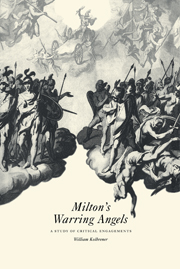7 - A “noble stroke”: representation in Paradise Lost
Published online by Cambridge University Press: 23 November 2009
Summary
“Eternity in a grain of sand” – or perhaps on two kernels of wheat. Walter Benjamin, Hannah Arendt recalls, was particularly enamored of an exhibit in the Musée Cluny of two such kernels upon which the entire Shema γisrael was inscribed. Here in what Dr. Johnson would disapprovingly call “discordia concors,” the timeless meets the temporal – the concrete particular resonates with the eternal. Johnson himself would have had no truck with Benjamin's fragmentary aesthetic; he had enough of that, as we have already noted, in Cowley, Cleveland, and Donne. Of these metaphysicals (for Johnson of course, it was a perjorative designation), Johnson averred:
Their attempts were always analytick: they broke every image into fragments, and could not more represent by their slender conceits and laboured particularities the prospects of nature or the scenes of life, than he who dissects a sun-beam with a prism can exhibit the wide effulgence of a summer moon …
The metaphysical sensibility was hopelessly local and disjointed. This may have been bad in itself, but it was made worse by the propensity to place this fragmentary sensiblity in the service of “illustrations, comparisons, and allusions.” One can only wonder what Johnson might have thought about Benjamin's kernels of wheat.
By the time of the Lives of the Poets, the analogical universe had lost much of its power, and a new episteme with a less paradoxical but ultimately more rigorous sense of totality had emerged. Indeed, already in the 1650s, Hobbes was revising his notion of wit from a concept which relied upon fancy and judgment – the power of discerning resemblance and difference respectively – to one which relied exclusively upon the latter.
- Type
- Chapter
- Information
- Milton's Warring AngelsA Study of Critical Engagements, pp. 133 - 157Publisher: Cambridge University PressPrint publication year: 1997



